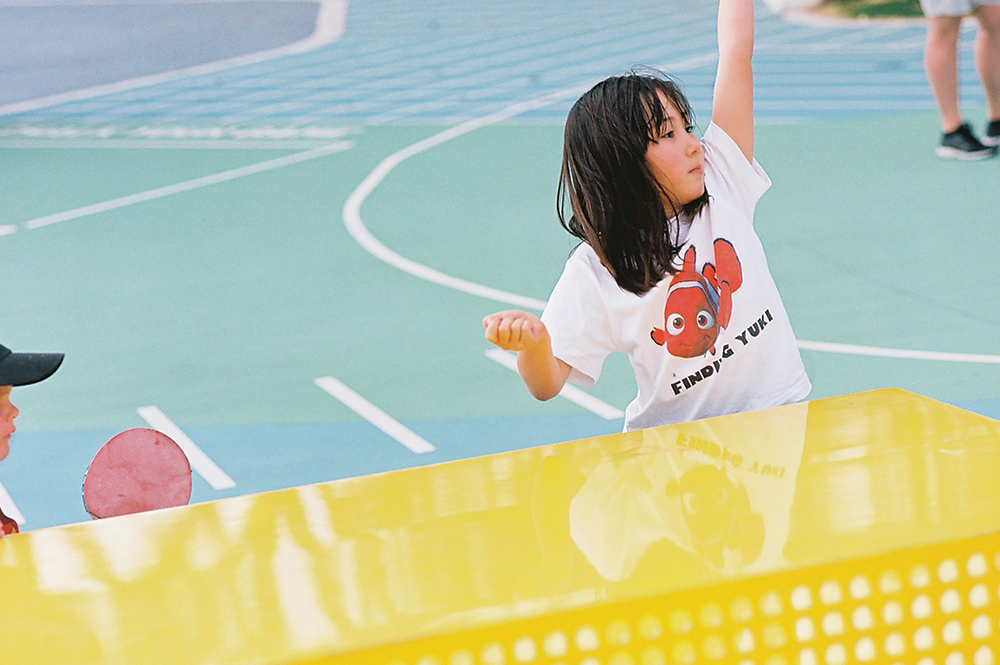Gender Sensitive Placemaking for Inclusive Communities

Ever noticed how rare it is to see teenage girls hanging out or being active in public spaces - compared to boys? Skate parks, basketball courts, soccer fields, playgrounds? Increasingly through research and active organisations in the space, we are learning that this is because these spaces aren't designed for girls - and for that reason girls are not engaged and often don't feel safe in them.
Gender sensitive placemaking is a design strategy addressing gender-biased built environments and gender-based violence in public spaces. The goal is to ensure women, girls, and gender-diverse people have equitable access to public spaces.
IMAGE CREDIT ABOVE
Location: Esplanade Park, WA
Image Credit: James Whineray
"Design can either facilitate or impede equitable access which can reinforce or break down gender stereotypes."
Gender Equity in Design Guidelines, City of Whittlesea
Where are the spaces for girls?
Having the opportunity and ability to occupy and enjoy public space positively impacts wellbeing in many ways, and should be experienced by all members of our communities, yet 80% of public space in cities is used by men and girls are 10 times more likely to feel unsafe in these spaces than men. An observational study out of Vienna saw that from around age 9 girls are far less likely to use parks, while boys keep using them well into their teens. This means boys are more active and continue to dominate park areas like basketball courts, skate parks and play equipment, making it even less likely for girls to stop and play.
Essentially, public space isn't designed with teenage girls in mind. Many play and green space strategies define facilities for teens as being skate parks, BMX tracks, pump tracks and multi-use games areas (think fenced off areas with basketball courts). All of these typically attract a particular demographic of boys more than girls, gender-diverse young people or boys with any number of varying interests.
Make Space For Girls is an organisation dedicated to shining a light on this gender discrepancy. The charity conducts ongoing research to inform and encourage those that can change the way things are currently done, to do so. They are challenging landscape architects, councils, developers and equipment manufacturers to be aware and proactively plan spaces in a more creative and inclusive way.
But how might this be done and what does it actually look like?
"There's also a fundamental question of social justice. To be in public space is to be part of the community, but all too often our places tell girls that they are not welcome, that they should be at home instead. And that's a lesson they learn for life."
Susannah Walker, Make Space For GirlsThe role of design
Design features such as alternative play equipment, multi-level and multi-use structures, and features to improve safety such as better lighting and sight lines all make spaces more inviting for girls and gender-diverse young people. The features need not be big or costly, they can be simple considerations for new designs or can be achieved by altering existing spaces.
Including certain changes and features that are likely to improve inclusivity is important but Make Space For Girls emphasises that the most vital part of the improvement and inclusivity process is talking to girls themselves - each city, park, and demographic is different.
![]()
At Einseilder Park in Vienna, a large urban space that was carefully designed with multiple play areas, it was observed that girls weren't stopping to linger or play.
They spoke to the girls about what wasn't working for them and began to make simple changes based off their comments:
We love this approach - and you can read more about the Vienna, Make Space For Girls case study here.
Design features such as alternative play equipment, multi-level and multi-use structures, and features to improve safety such as better lighting and sight lines all make spaces more inviting for girls and gender-diverse young people. The features need not be big or costly, they can be simple considerations for new designs or can be achieved by altering existing spaces.
Including certain changes and features that are likely to improve inclusivity is important but Make Space For Girls emphasises that the most vital part of the improvement and inclusivity process is talking to girls themselves - each city, park, and demographic is different.

At Einseilder Park in Vienna, a large urban space that was carefully designed with multiple play areas, it was observed that girls weren't stopping to linger or play.
They spoke to the girls about what wasn't working for them and began to make simple changes based off their comments:
- Hammocks and wooden structures for seating and performance spaces were added.
- The fully enclosed fenced areas were opened up by removing one side of the fence and including several more entrance points which made it feel safer for girls.
- The large pitch area was broken up by a multi use structure so it was no longer taken over by one game of football.
We love this approach - and you can read more about the Vienna, Make Space For Girls case study here.

At Rösens Rodda Matta in Malmö, a small urban park that was co-designed with teenage girls.
The park was broken up into several distinct areas to prevent one group dominating the entire space. It also included a stage, a climbing wall and exercise bars - all alternatives to the stock standard park equipment, and even the height of exercise bars was considered - tall enough for girls to play and explore but not tall enough to attract young men looking for an outdoor gym.
We encourage you to check out the Malmö case study (and others) here.
With a strong emphasis of permanency in place design - a POPP outdoor table tennis table is proving to be a great option for making gender sensitive additions to public spaces. Table tennis is an activity safely and enthusiastically enjoyed by all genders, ages and abilities and POPP tables are built to last a lifetime of equitable play. Say hello by email if you'd like to talk more about gender sensitive placemaking in your project and how POPP may help
"There must be a kind of permanency to the way we deal with gendered experiences in cities, because it shows everybody that it is significant. It's important. It's permanent. It's not just passing us by."
Dr Nicole Kalms, design researcher, founder of XYX LabFurther Reading:
If this article has inspired your interest on the topic check out these resources and articles for more.
Resources For Design Professionals - by Make Space For Girls
Not Neutral: Diverse and Inclusive Public Spaces - by Landscape Australia
The Importance of Gender Sensitive Public Lighting - by Arch Daily
Creating Safer Communities - by Assemble Papers
